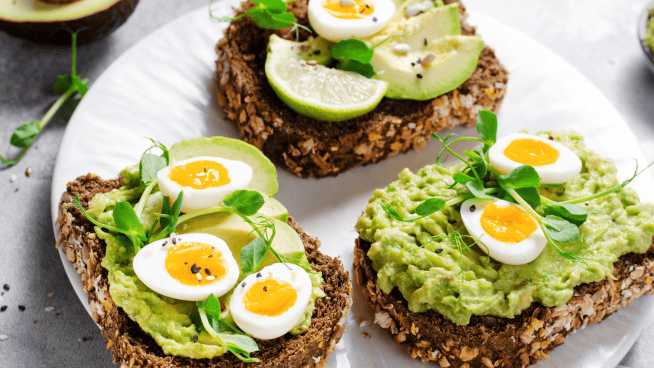Should Athletes Use a Juicing Diet?
Athletes of all ages need proper nutrition to perform at a high level. Lately, some professional athletes, such as Jon “Bones” Jones and Josh Hamilton, have attributed their success to drinking blended shakes consisting of vegetables and fruits. But before you run off to the store and buy a new Omega Juicer, let’s look at the science behind juicing.
RELATED: Is Juicing a Healthy Diet Plan?
Benefits of a Juicing Diet
The benefits of a juicing diet vary widely. Many “cleansing” companies state that juicing diets detoxify the body, increase energy, optimize digestion and facilitate weight loss. Yet they fail to cite any studies indicating that the body actually needs to be “cleansed.”
Instead, they point to studies stating that vegetable juicing is an effective and acceptable way for healthy adults to increase their vegetable intake and improve cardiovascular health markers. Of course, this is nothing new, since all athletes know that diets packed with vegetables and fruits provide vitamins, minerals and fiber, and improve overall health markers.
In essence, according to these companies, juicing is a way to eat your fruits and vegetables without having to consume them in their natural state.
RELATED: The Healthiest Ways to Prepare Your Vegetables
The Problem with a Juicing Diet
The issue for athletes following juicing diets is that they are neither sustainable nor optimal for sports performance. Shakes consisting of only fruit and vegetables provide plenty of necessary micronutrients, but they lack two important macronutrients needed by athletes—protein and fat.
The International Society of Sports Nutrition recommends that athletes consume between 1.4 to 2.0 grams of protein per kilogram of body weight per day. Both endurance and power athletes need large amounts of protein to offset the oxidation of amino acids during exercise and activity. Without optimal protein intake, athletes cannot repair the muscle damage caused by exercise or recover properly for their next game. Simply put, consuming only vegetables and fruits prevents them from meeting their protein requirements unless they also consume protein-dense whole foods or supplement with protein powder.
RELATED: 20 Delicious Ways to Add Protein to Your Diet
Besides protein, dietary fat is needed by athletes for overall health and performance. As noted by Dr. Askey Jeukendrup and Dr. Michael Gleeson in Sport Nutrition, Second Edition, dietary fat is an important substrate of fuel for endurance exercises and for the absorption of vital vitamins and minerals needed for both health and performance. Juicing alone does not provide enough dietary fat.
Use Juicing to Supplement Your Nutrition
The key takeaway: the kind of juicing recommended by cleanse advocates is not optimal for endurance and power athletes. Nevertheless, most athletes do not consume enough vegetables and fruits in their daily diet. Juicing does provide a way to obtain important micronutrients and meet your vegetable and fruit intake requirements. However, it should be used to supplement a diet consisting of whole, nutrient-dense foods, not substitute for it. So go ahead and invest in that juicer, but make sure your diet doesn’t consist solely of juices.
[cf]skyword_tracking_tag[/cf]
RECOMMENDED FOR YOU
Should Athletes Use a Juicing Diet?
Athletes of all ages need proper nutrition to perform at a high level. Lately, some professional athletes, such as Jon “Bones” Jones and Josh Hamilton, have attributed their success to drinking blended shakes consisting of vegetables and fruits. But before you run off to the store and buy a new Omega Juicer, let’s look at the science behind juicing.
RELATED: Is Juicing a Healthy Diet Plan?
Benefits of a Juicing Diet
The benefits of a juicing diet vary widely. Many “cleansing” companies state that juicing diets detoxify the body, increase energy, optimize digestion and facilitate weight loss. Yet they fail to cite any studies indicating that the body actually needs to be “cleansed.”
Instead, they point to studies stating that vegetable juicing is an effective and acceptable way for healthy adults to increase their vegetable intake and improve cardiovascular health markers. Of course, this is nothing new, since all athletes know that diets packed with vegetables and fruits provide vitamins, minerals and fiber, and improve overall health markers.
In essence, according to these companies, juicing is a way to eat your fruits and vegetables without having to consume them in their natural state.
RELATED: The Healthiest Ways to Prepare Your Vegetables
The Problem with a Juicing Diet
The issue for athletes following juicing diets is that they are neither sustainable nor optimal for sports performance. Shakes consisting of only fruit and vegetables provide plenty of necessary micronutrients, but they lack two important macronutrients needed by athletes—protein and fat.
The International Society of Sports Nutrition recommends that athletes consume between 1.4 to 2.0 grams of protein per kilogram of body weight per day. Both endurance and power athletes need large amounts of protein to offset the oxidation of amino acids during exercise and activity. Without optimal protein intake, athletes cannot repair the muscle damage caused by exercise or recover properly for their next game. Simply put, consuming only vegetables and fruits prevents them from meeting their protein requirements unless they also consume protein-dense whole foods or supplement with protein powder.
RELATED: 20 Delicious Ways to Add Protein to Your Diet
Besides protein, dietary fat is needed by athletes for overall health and performance. As noted by Dr. Askey Jeukendrup and Dr. Michael Gleeson in Sport Nutrition, Second Edition, dietary fat is an important substrate of fuel for endurance exercises and for the absorption of vital vitamins and minerals needed for both health and performance. Juicing alone does not provide enough dietary fat.
Use Juicing to Supplement Your Nutrition
The key takeaway: the kind of juicing recommended by cleanse advocates is not optimal for endurance and power athletes. Nevertheless, most athletes do not consume enough vegetables and fruits in their daily diet. Juicing does provide a way to obtain important micronutrients and meet your vegetable and fruit intake requirements. However, it should be used to supplement a diet consisting of whole, nutrient-dense foods, not substitute for it. So go ahead and invest in that juicer, but make sure your diet doesn’t consist solely of juices.
[cf]skyword_tracking_tag[/cf]











